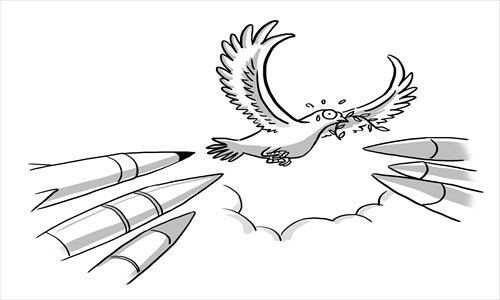Nuclear advocates have little pull in S.Korea

For several decades, the practice of containment against North Korea left a strong imprint on the strategic thinking of South Korea and the US.
The question of what should be done to deter North Korea's military provocations was mainly focused on the concern that the failure to stand firm against the North would erode the reputation of the South Korean-US alliance for the containment of potential challenges.
Consequently, strategic writings were generally preoccupied with signaling an intention to punish the North even when the stakes were low, which in turn would make the commitment less credible. In addition, the emergence of a nuclear North Korea has prompted the question of whether or not the strategic interests of the US and South Korea are intrinsically identical in deterring North Korea.
In this vein, North Korea's third nuclear test ignited what is an unwelcoming domestic debate on whether or not Seoul should acquire its own independent nuclear capability as a deterrent toward Pyongyang.
With North Korea's nuclear tests and US commitment to extended deterrence, conservative politicians and nationalistic columnists have gradually ventured conjectures on South Korea's independent nuclear capability, long been regarded as taboo to even discuss.
This is the "nuclear sovereignty" argument. They essentially argue that a nuclear weapon program can only improve South Korea's vulnerable national security situation.
Moreover, they argue that the umbrella of the US nuclear deterrence has long been broken and South Korea cannot infinitely rely on the US commitment. North Korea's nuclear venture and the failure of the Six-Party Talks only proves that North Korea will not give up its nuclear capabilities. Therefore, Seoul needs to deter further North Korean provocation through a nuclear capability of its own.
While the nuclear sovereignty argument remains a minority perspective, the less "extreme" argument is that South Korea's drive for, not actual possession of, its own nuclear capabilities, will enhance its leverage against North Korea and upgrade South Korea's strategic value to its neighbors, especially China.
Another emerging argument can be called a peaceful nuclear sovereignty argument. This group rejects the idea of possessing nuclear weapon. Rather, they believe South Korea should be able to construct the fuel cycle, enrichment and reprocessing of nuclear material for energy generation. Since South Korea currently generates about 40 percent of its electricity through 21 nuclear power plants across the nation, it should be able to reprocess the spent-fuels for recycling.
The current constraints imposed by the US are too rigid, they argue. They demand that South Korea should be able to enjoy the same nuclear sovereignty that Japan enjoys for the purposes of energy regeneration.
Nuclear scientists, science journalists and energy industrialists support this perspective.
South Korea is a vibrant and pluralistic society where many differing opinions are well expressed. Nevertheless, the general sentiment in South Korea is not so favorable toward the nuclear sovereignty argument. The opponents argue that these decisions may cost much more than Seoul can bear.
An independent South Korean nuclear weapon program would mean the real termination of a nuclear free Korean Peninsula, the end of the US-South Korea alliance, and, above all, the withdrawal of membership from the Treaty on the Non-Proliferation of Nuclear Weapons.
South Korea's international legitimacy comes from its respect for international norms and commitment for defending the UN Charter and the non-proliferation treaty regime.
With an independent nuclear weapon program, South Korea may become another North Korea, and South Koreans are well aware of this.
Rather, most South Koreans are rational in the sense that they support the idea of gradually and peacefully resolving the North Korean problem.
Peace and stability will face actual doomsday should Seoul go nuclear. This may mean that leadership in Beijing, Washington and Tokyo, in cooperation with Seoul, should look for a peaceful exit strategy to achieve a complete and nonreversible resolution on North Korea's nuclear venture.
As responsible players in international politics, the members of the Six-Party Talks should not give up the wisdom of peaceful resolution on the Korean Peninsula. South Korea still assumes the unshakable responsibility of realizing a nuclear free Korean Peninsula.
The author is an associate professor of political science and international relations, Yonsei University. opinion@globaltimes.com.cn